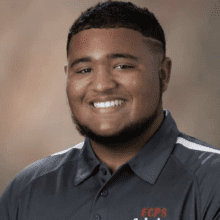

As a Black and ethnically Jewish young man, I can’t help but think how the refusal to teach about race and Black history could and would hurt school systems — as well as me in my future career as a teacher. I am from eastern North Carolina, born and raised in Nash County.
Ever since I was little, I have always known I was different from the majority of my classmates, and what really made me feel awkward is when discussions of slavery (only done during Black History Month of course) came up in my middle school experience.
I began to notice how the real history of slavery was surgically dissected from the lesson to provide washed-out teachings of Black history. In the past year and more recently in the news, Critical Race Theory, or CRT, which is an academic and legal framework typically taught in graduate-level classes, has become the phrase used when some teachers do try and teach the real history of our country.
CRT denotes that systemic racism is part of American society — specifically, CRT recognizes that racism is more than the result of individual bias and prejudice. It is baked in laws, policies, and institutions that uphold and reproduce racial inequalities, according to the theory.
But CRT isn’t being taught in North Carolina public schools. Instead, real history is being taught. Teaching about our past in a way that acknowledges racism is being misrepresented as CRT.
At least 32 states have introduced bills or taken other steps to limit how teachers can discuss racism and sexism, at times under the guise of CRT, and multiple North Carolina counties are in the process.
In Johnston County, the school board last year decided to make it an offense for teachers to teach CRT, but in actuality they were limiting how educators could teach about Black history and racism.
Though Gov. Roy Cooper vetoed a similar effort in state legislation last year, local efforts like these stifle the work of teachers and create uninformed North Carolinians. Educators should never be condemned for teaching real history to the future of our America, and they certainly shouldn’t be forced into submission by fear of losing their jobs.
Growing up Black and Jewish in the public school system, I have faced bias among classmates and have had to navigate my way through uncovering my own true history. But if the teaching of real history, including Black history, is implemented in a way that it can be taught to each grade level, students like me — and even white students — will become more informed on our state’s and nation’s background. This would also provide young adults with more knowledge on how to fix the injustices in our communities, such as engaging in safe political conversations and conducting research on specific issues facing people of color.
Two main reasons why these limitations can’t progress
- Students deserve a sound basic education.
Students in North Carolina are entitled to a sound basic education, and Black students and students of color like me deserve to learn the truth about our history. This will ensure that we have a deeper understanding of historical knowledge and help us build skills to make sense of the larger world.
A study released by the Southern Poverty Law Center’s Teaching Tolerance found that, among 12th graders, only 8% could identify slavery as the chief cause of the Civil War. By limiting teaching about history and justifying it by “removing CRT frameworks,” these numbers will stay the same in most cases, or worse, they will shrink.
- These limitations don’t support teachers.
Constant debates across the nation are adding stress to exhausted teachers.
Parents and community members are divided. In an April poll by Spectrum News/IPSOS, 26% of registered North Carolina surveyed said they strongly supported “banning the teaching of critical race theory in North Carolina public schools,” and another 7% said they “somewhat supported” a ban. In the same poll, 27% of respodents “strongly opposed” a ban on CRT, and 8% said they “somewhat opposed” a ban.
On top of reflecting misinterpretations of what CRT is, this kind of tension and potential backlash could lead teachers in our own state and states across our nation to turn in their classroom keys. With the 8.2% of teachers who resigned in 2020-2021 school year, we can’t afford more teacher turnover in North Carolina — especially in the upcoming school years.
American society would become increasingly dysfunctional without people being educated on America’s past and the impacts it has on present day.
If we are going to have a democracy where there is no one person or institution in total power, our elected officials and other leaders need to be adequately educated.
Academic institutions like our state’s K-12 system must teach the inequities that separate our communities, leave students with an understanding of history and its relevance today, and promote a holistic teaching approach to develop a high-functioning society.




